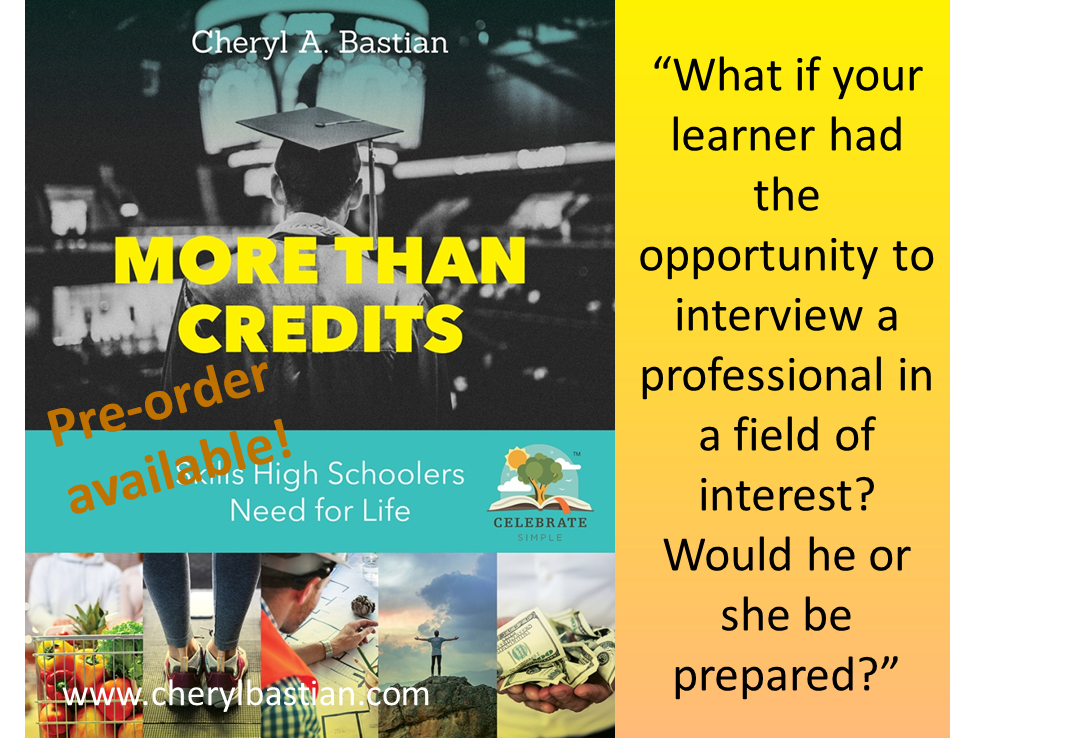Foreign Language College and University Admission Requirements
/I speak to rooms full of parents--living rooms conversations to packed convention halls--considering and navigating a home education journey for their middle and high school young adults. Most often we talk about specifics and how-tos. At some point in the presentation, usually during a Q&A session, I am asked to address specific admission requirements.
One of the most popular questions relates to foreign language.
Like most aspects of high school, there isn’t a one-size-fits-all answer to the question.
The answer to the foreign language question—what is required for college or university admission—the inquirer must know that the answer varies per institution and sometimes per major.
For the sake of this blog post, to clarify, home educated in our state means enrolled in the Home Education Program with the county of residence. Those students are defined as home education students (homeschooling) and will apply to colleges as home educated, non-traditional, or non-accredited graduates. The terms used for the admission status varies college to college.
In our state if the student chooses to enroll in a private school (sometimes referred to as an umbrella school) as a place of record, that student is considered a private school student and will apply to colleges as a private school graduate. Some colleges and universities require private school students be enrolled in an accredited entity, by the state or by a regional accrediting agency. This is extremely important to note as not all accreditation is considered equal by some universities.
Some colleges and universities require foreign language for admission as well as for the General Education portion of the undergraduate degree. What parents and students don’t know is that sometimes (as in the case for some universities in our state), the high school foreign language credits which met the admission requirement will be credited to the Bachelor’s degree. Be sure to ask this question of the admission department or advisor.
University of Oklahoma states this on their website
“Foreign Language (2 courses, 6-10 hours). This requirement can be satisfied by successfully completing two semesters of the same foreign language at the college level equivalent to two semesters at OU. It also may be satisfied by successfully completing two years of the same foreign language in high school or by demonstrating an equivalent level of competence on an assessment test.”
Don't assume.
Read the contents of the university website and do research before connecting with the college. Ask what is needed, but don’t ask obvious questions which are answered on the site. Being knowledgeable shows interest and motivation.
Some universities are hiring admissions counselors designated to serve home educated students. After reading online admission requirements, have the student make contact with the counselor. Advanced research and knowledge demonstrates interest and initiative.
“Pat Wesoloski has been homeschooling for more than 29 years and works at Bryan College to help homeschool families navigate the admissions process.”
A running list of questions may be helpful. Help your learner process what he or she may want to ask.
Early research allows families to plan well. Gain the knowledge you need but don’t panic if your learner doesn’t quite know what he or she wants to study or where he or she wants to attend. There’s time to figure these things out.
Not all college and universities accept all languages. Be sure to check if there are any exceptions or out-of-the-box recommendations or requirements.
Though some colleges require only two years of foreign language, some require three or four. Be sure to investigate the requirements for any university of choice. If you found out late in the high school years that four years is required for admission, don’t panic. Home educated students have the time (and often the motivation to manage that time) to complete more than one year in a year.
“At least 2 years—preferably 3—of a classical or modern language”
“Two consecutive years of a foreign language (American Sign Language recognized as a foreign language)
”
“Vanderbilt does not prescribe a specific distribution of high school coursework requirements, but most competitive applicants will have completed four full years of coursework in the five core academic areas of English, math, social studies, science (3 lab sciences), and foreign language.”
Locating specific course requirements for admission can take time. This is why I add or update links to this page as I find them. If your student's college of interest is not listed below, try typing "foreign language" or “high school course requirements” in the search box of the college website.
Direct links to foreign language requirements are offered below.. Be sure to continue research and stay up-to-date based on the unique needs of your high school learner. Check back as I update this post.
Agnes Scott College, Decatur, GA
Arizona State University, Phoenix Area, AZ
Berry College, Mount Berry, GA
Bellhaven University, Jackson, MS
Bentley University, Waltham, MA
Brandeis University, Waltham, MA
Bucknell University, Lewisburg, PA
Central Methodist, Fayette, MO
Charleston Southern University, Charleston, SC
Colorado State University, Fort Collins, CO
Drexel University, Philadelphia, PA
Emory-Riddle Aeronautical University, Daytona Beach, FL
Florida Agricultural and Mechanical University, Tallahassee, FL (click on Academic Core Units and Homeschool/Non-traditional)
Florida Atlantic University, Boca Raton, FL
Florida Gulf Coast University, Ft. Myers, FL (click Units tab for specific courses)
Florida Institute of Technology, Melbourne, FL
Florida International University, Miami, FL
Florida Polytechnic University, Lakeland, FL
Florida State University, Tallahassee, FL
Franciscan University, Steubenville, OH
Furman University, Greenville, SC
Georgia Institute of Technology, Atlanta, GA
Greensboro College, Greensboro, NC
Guilford College, Greensboro, NC
Harvard College, Cambridge, MA
Indiana University, Bloomington, IN
James Madison University, Harrisonburg, VA
Methodist University, Fayetteville, NC
Montreat College, Montreat, NC
Northeastern University, Portsmith, NH
Ohio State University, Columbus, OH
Olgethorpe University, Atlanta, GA
Patrick Henry College, Purcellville, VA
Pensacola Christian College, Pensacola, FL
Pennsylvania State University, University Park, PA
Princeton University, Princeton, NJ
SMU- Southern Methodist University, Dallas, TX
Southeastern Louisiana University, Hammond, LA
St. Johns College, Annapolis MD and Santa Fe, NM
Stanford University, Stanford, CA
Stetson University, Deland, FL
Southern Methodist University, Dallas, TX
Syracuse University, Syracuse, NY
The College of William and Mary, Williamsburg, VA
Tulane University, New Orleans, LA
United States Air Force Academy, Colorado Springs, CO
United States Naval Academy, Annapolis, MD
University of Alabama, Tuscaloosa, AL
University of Central Florida, Orlando, FL
University of Cincinnati, Cincinnati, OH
University of Illinois, Urbana, IL
University of Michigan, Ann Arbor, MI
University of Minnesota, Minneapolis, MN
University of New Hampshire, Durham, NH
University of North Carolina, Chapel Hill, NC
University of North Florida, Jacksonville, FL
University of Notre Dame, Notre Dame, IN
University of Oklahoma, Norman, OK
University of RIchmond, Richmond, VA
University of South Florida, Tampa, FL
University of Tennessee, Knoxville, TN
University of West Florida, Pensacola, FL
Valdosta State University, Valdosta, GA
Vanderbilt University, Nashville, TN
Vassar College, Poughkeepsie, NY
thoughts on admissions at Yale



















